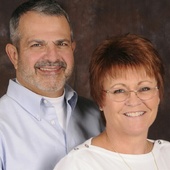Most Americans earn considerably more money then their parents did – even after adjusting for inflation. Yet, nearly half live paycheck to paycheck with an ongoing credit card balance of $2,000 or more. Less than half know how much they need to save for retirement, and over 90 percent of those have saved less than $10,000.
It’s a grim picture for many, but it doesn’t need to be that way. Becoming rich and free in America is achievable…once you know the secrets. Here are six simple, yet powerful ways you can plan for an early, wealthy retirement:
Secret #1: Stop Borrowing! The greatest detriments to wealth are: 1) taxes and 2) debt. Most debt is a voluntary, discretionary decision. Many people spend excessively to compensate for an emotional need that’s going unfulfilled in other areas of their lives. The “instant high” of spending is appealing at the moment, but deadly in the long run. Many people view financial discipline as deprivation, but what they’re really depriving themselves of is a future of financial freedom and wealth. If you can’t buy it with cash, don’t buy it. Yes, this even includes your car!
Secret #2: Accelerate Repayment Of Existing Debt. For example: Shortening the payment schedule on a $100,000 home loan at 8 percent from 30 years to 15 years will increase your monthly payment $221.89 (from $733.76 to $955.65), but saves a whopping $92,138 in interest over the loan term…interest that could be invested. Plus, the faster you get out of debt, the sooner you can invest the difference and get on the road to financial freedom.
Secret #3: Budget Smart. Budgeting is not a punishment, but an opportunity. It enables you to make conscious choices to maximize enjoyment over the long run. Plan every expenditure. Here’s a helpful tip: Track every penny that you earn and spend for three months. Do it manually, or use a simple computer program such as Quicken® to track your income and expenditures. Keep a bowl near the door to drop receipts in when you come home. Figure which expenditures would be the easiest to cut out. Cut them and invest the difference.
Secret #4: Make It Inconvenient To Access Your Money. Figure how much cash you need for the week, and carry only that amount. Consider using a debit card instead of a credit card, so all expenditures are on a cash basis. If you must use a credit card, pay off the balance every month – without exception. Doing otherwise is putting your financial future in jeopardy.
Secret #5: Pay Yourself FIRST! Take at least 10 percent of every paycheck from work, and invest it. You’ll be surprised at how much money you’ll accumulate. For example: If your paycheck every two weeks is $1,000, take 10 percent of it FIRST, and invest it. By the end of the year you’ll have $2,600 plus accrued interest and earnings on your investment. Better still, your investment will compound (earning interest on your interest) over the years, yielding greater wealth.
Secret #6: Invest Wisely. The most successful investors set investment goals, then work backwards. For example, if your goal is to have $40,000 saved in five years, and you can earn 7 percent on your money with investments, then you’ll need to set aside $558 per month. Investment success is not about shooting for the highest return. It’s about taking the least amount of risk necessary to achieve your goals.
Here are two final rules for becoming rich: 1) change from a “debtor” mentality to a “creditor” mentality, and 2) strive continuously to convert yourself from “income dependent” to “asset dependent,” whereby ultimately your assets produce income for you automatically and you can say good-bye to working for a living.

Comments(3)